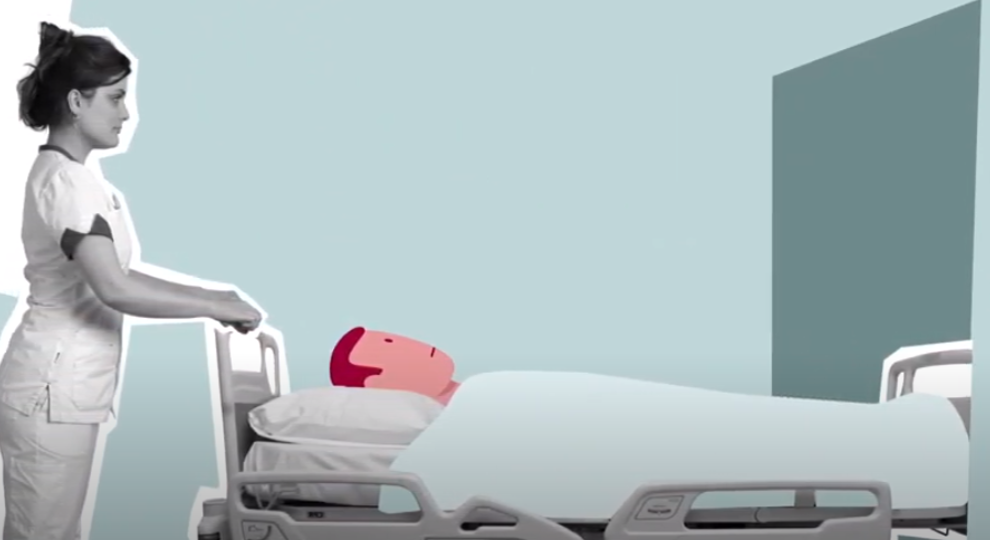Surgery for cancer in the oral cavity
During surgery for cancer in the oral cavity, your surgeon will remove a tumor that developed on your tongue, soft tissue of the mouth floor, or the mucus membrane in the cheeks.
The complexity of the surgery will depend on the size and location of the tumor. Small tumors in the mouth can be removed by excision through the oral cavity, while pieces of the lower jaw, or lymph nodes in the neck will need to be removed once the tumor has progressed. We can use the skin of the arm, the leg, or bone from the leg to reconstruct your jaw, if necessary.
You may need radiation therapy after surgery, sometimes combined with chemotherapy.
More information
Surgery to the oral cavity – what to expect?
Tumors in the oral cavity are removed under general anesthetics. The procedure will be handled by two specialists: a head and neck specialist and a reconstructive surgeon. No matter its size, the tumor will be removed together with its margins. This can be tissue from the tongue, the bottom of your mouth, the soft palate, or even a piece of your bottom jaw. Your surgeon may want to preventatively remove your lymph nodes as well.
Your surgeon will fill the gap using a transplant. This can be a piece of skin, muscle, or bone from another part of your body such as the chest, forearm, or lower leg. If part of your jaw has to be removed, your surgeon will use metal or bone from your lower leg to craft a prosthetis.
Effectiveness
Cancer in the oral cavity can be treated effectively with surgery. The risk of recurrence, however, remains.
This is why we will invite you to come in for regular screenings for at least 5 years. These screenings will decrease in frequency after the first few months.
Preoperative screening
Before your surgery, you will be invited to meet with your anesthesiologist at the outpatient clinic for a consultation and a brief examination to assess your overall shape and any potential particularities we will need to keep in mind. The consultation assistant will measure your heart rate and blood pressure and will inquire about your height and weight. If needed, we can take those measurements during the appointment.
This preoperative screening will take approximately 20 minutes and will form the base of your anesthesia. Your anesthesiologist will listen to your lungs and heart and inspect your mouth and throat in preparation of the breathing tube that will be placed during surgery. Your anesthesiologist will also ask you:
Before your surgery, you will be invited to meet with your anesthesiologist at the outpatient clinic for a consultation and a brief examination to assess your overall shape and any potential particularities we will need to keep in mind. The consultation assistant will measure your heart rate and blood pressure and will inquire about your height and weight. If needed, we can take those measurements during the appointment.
This preoperative screening will take approximately 20 minutes and will form the base of your anesthesia. Your anesthesiologist will listen to your lungs and heart and inspect your mouth and throat in preparation of the breathing tube that will be placed during surgery. Your anesthesiologist will also ask you:
- whether you have been under anesthesia before
- whether you have any other conditions
- whether you have taken cancer medicine before
- whether you have had radiation treatment before
- whether you have any allergies
- whether you smoke
- whether you drink alcohol
- what kind of medication you take
Please inform your anesthesiologist of the type of medication and dose you take, and how often you take it. Your physician may want to run more tests before your surgery, such as: electrocardiogram (ECG), lung x-rays, a lung function test, or a blood test.
General or local anesthesia
Before your surgery you will be given general anesthesia, local anesthesia, or a combination of the two. General anesthesia means that you will be completely unconscious during surgery, whereas local anesthesia means that a part of your body will be numb and motionless.
General anesthesia
General anesthesia completely sedates your body. You will be given a cocktail of sleeping medicine, pain killers, and sometimes a muscle relaxant through IV. You will be unconscious within 30 seconds. You will be ventilated during the entire process.
If you are having major surgery, we will place a respiration tube in your throat. For smaller surgeries, a small cap in the back of the throat will suffice. We will closely monitor your heart rate, blood pressure, breathing, and temperature through our monitoring devices.
Local anesthesia
If you are given local anesthesia, you will be conscious during your surgery. Local anesthetics are usually administered through an epidural in the spine, and will temporarily numb all body parts underneath. We may place a tube to give you IV pain medication during and after surgery.
Your anesthesiologist will keep a close eye on your blood pressure, heart rate, breathing, and temperature in order to adapt the anesthesia if needed.
Most people undergoing major surgery will be given a mixture of general and local anesthetics.
Side-effects and complications
You may experience trouble articulating, swallowing, or chewing. The radiation therapy delivered after your surgery can cause dryness of the mouth, and diminished tongue movements may increase your trouble speaking or swallowing.
You may feel discomfort in the neck or shoulders as a result of the removal of the lymph nodes.
After your surgery
You will receive radiation treatment for some time after your surgery. A logopedist will assist you in regaining your articulation and swallowing, and a oral hygienist can help you rinse the oral cavity.

 nl
nl
 Nederlands (Nederland)
Nederlands (Nederland)
 English (United States)
English (United States)